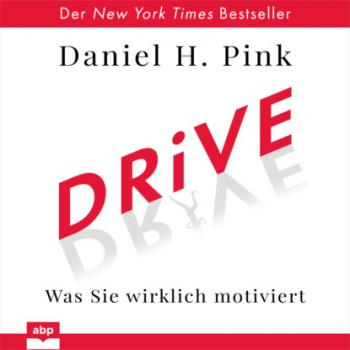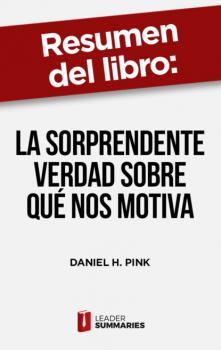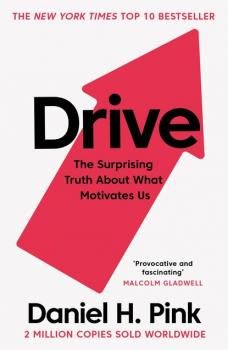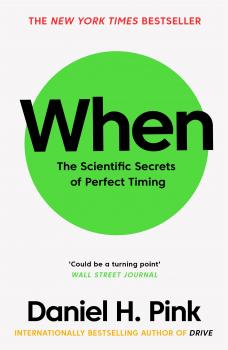ТОП просматриваемых книг сайта:
Daniel H. Pink
Список книг автора Daniel H. PinkАннотация
La mayoría de nosotros tenemos un planteamiento exclusivamente transaccional de las relaciones en la empresa: tú haces como que me pagas, yo hago como que trabajo. Si te pago más, trabajas más. Si te ofrezco incentivos, te esfuerzas adicionalmente. A través de investigaciones, experimentos y casos reales relacionados con la motivación, Daniel H. Pink nos demuestra que lo que realmente funciona es la motivación intrínseca. El palo y la zanahoria son unos pésimos sucedáneos de motivación, que sirven únicamente para tareas muy rudimentarias. Para ilustrar esto, el autor nos recuerda los experimentos de Harry Harlow —en los que quedó demostrado el hecho de que el aprendizaje significativo y el desempeño eficiente se logran sin incentivos especiales o externos— y de Edward Deci, en los que se observó que el uso del dinero como incentivo externo hace que los sujetos pierdan interés intrínseco por la actividad. Esto no significa que el dinero no sea motivador, sino que motiva de otra manera. Si un profesional no cobra lo que necesita, no va a contribuir como podrá; hay que pagarle lo suficiente como para que no piense en el dinero. Según Pink, los pilares de la motivación intrínseca son tres: la autonomía (el deseo de dirigirse a uno mismo, de hacer una contribución decisiva), la maestría (llegar a dominar la disciplina por la que tenemos vocación) y el propósito (la misión, la visión y los valores de una empresa). Las organizaciones que saldrán de la presente crisis son aquellas que maximizan su propósito, no su beneficio.
Аннотация
Аннотация
Everyone knows that timing is everything. But we don't know much about timing itself. Our lives are a neverending stream of 'when' decisions: when to start a business, schedule a class, get serious about a person. Yet we make those decisions based on intuition and guesswork.
Timing, it's often assumed, is an art; in When, Pink shows that timing is in fact a science.
Drawing on a rich trove of research from psychology, biology and economics, Pink reveals how best to live, work and succeed. How can we use the hidden patterns of the day to build the ideal schedule? Why do certain breaks dramatically improve student test scores? How can we turn a stumbling beginning into a fresh start? Why should we avoid going to the hospital in the afternoon? Why is singing in time with other people as good for us as exercise? And what is the ideal time to quit a job, switch careers, or get married?
In When, Pink distills cutting-edge research and data on timing and synthesizes them into a fascinating, readable narrative packed with irresistible stories and practical takeaways that give readers compelling insights into how we can live richer, more engaged lives.
Timing, it's often assumed, is an art; in When, Pink shows that timing is in fact a science.
Drawing on a rich trove of research from psychology, biology and economics, Pink reveals how best to live, work and succeed. How can we use the hidden patterns of the day to build the ideal schedule? Why do certain breaks dramatically improve student test scores? How can we turn a stumbling beginning into a fresh start? Why should we avoid going to the hospital in the afternoon? Why is singing in time with other people as good for us as exercise? And what is the ideal time to quit a job, switch careers, or get married?
In When, Pink distills cutting-edge research and data on timing and synthesizes them into a fascinating, readable narrative packed with irresistible stories and practical takeaways that give readers compelling insights into how we can live richer, more engaged lives.




